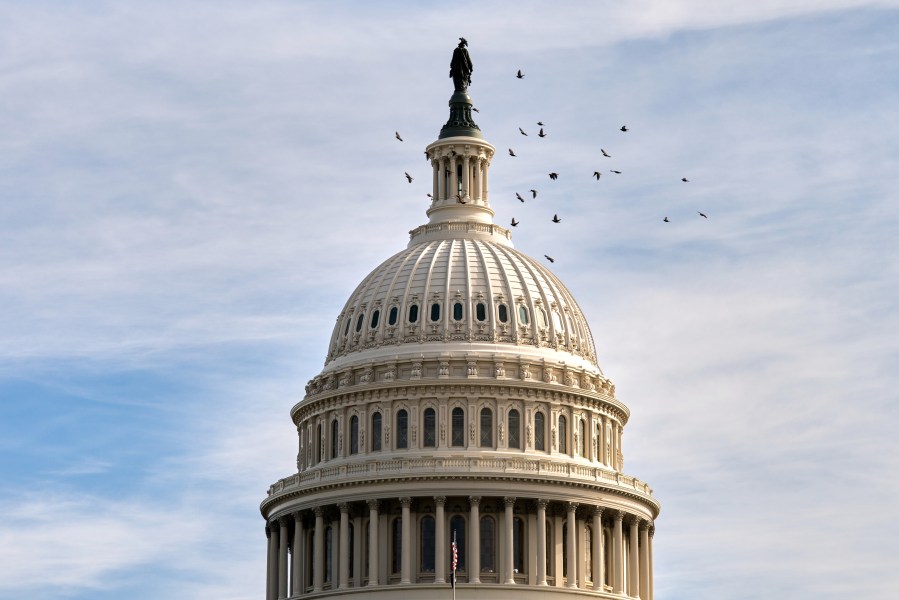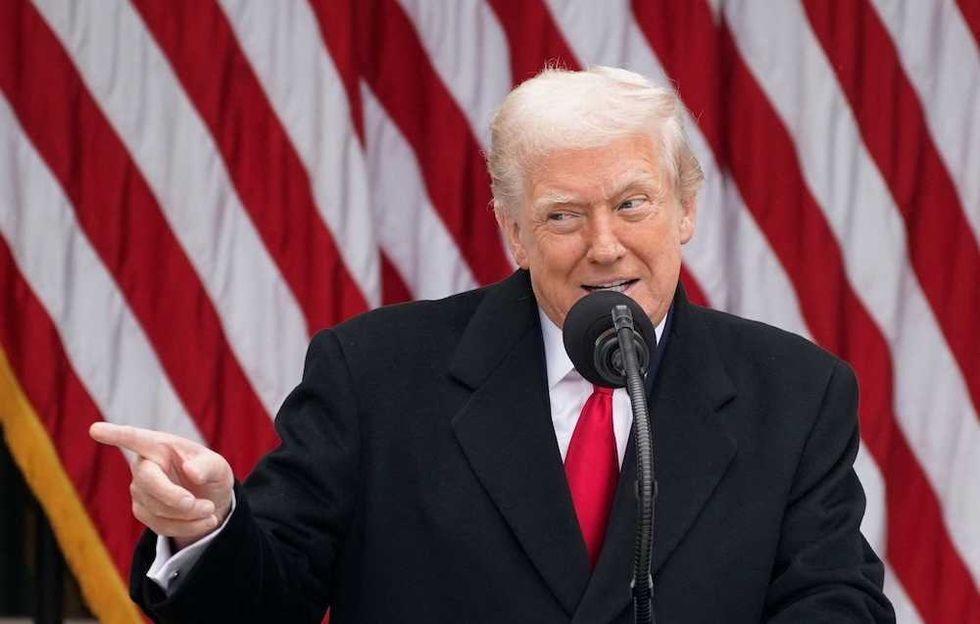The ongoing government shutdown in the United States is on track to become the longest in history as negotiations intensify among lawmakers to reach a resolution. As of this week, the shutdown has reached day 35, surpassing the previous record and impacting millions of Americans across various sectors.
Senators from both the Republican and Democratic parties are engaged in behind-the-scenes discussions aimed at reopening the government. With support from their leadership, they are working to restore normal federal funding processes and find solutions to the crisis surrounding expiring health insurance subsidies that are causing premium costs to rise significantly nationwide.
Senate Majority Leader John Thune, a Republican from South Dakota, expressed the urgency of the situation, stating, “Enough is enough,” as he addressed the deadlocked chamber. The current shutdown has disrupted essential services, including the interruption of SNAP benefits for countless families, flight delays at airports, and the furlough of hundreds of thousands of federal employees.
Labor unions have voiced their concerns, amplifying pressure on lawmakers to take action. Election Day on November 7, 2023, is expected to serve as a pivotal moment for assessing voter sentiment, particularly with off-year governor’s races in Virginia and New Jersey, as well as a mayoral race in New York.
Senate negotiations have been characterized by stalled progress, including a recent failure to advance a temporary funding bill proposed by Democrats. Senate Democratic Leader Chuck Schumer emphasized the need for common-sense measures, stating, “Lowering people’s healthcare costs is the definition of common sense.”
In contrast to the previous government shutdown during former President Donald Trump‘s first term, which centered around funding for the U.S.-Mexico border wall, Trump has remained mostly silent in the current debates. However, he recently threatened to halt SNAP benefits unless Democrats agree to reopen the government, which could conflict with court orders regarding the release of contingency funds for the program.
As the House remains largely inactive, attention is focused on the Senate, where a bipartisan group of centrist senators is striving to resolve the ongoing stalemate. House Speaker Mike Johnson stated, “We pray that today is that day,” as he highlighted the urgency of the matter amidst growing frustrations.
Central to any potential agreement is the need to restore the normal funding process. Key members of the Senate Appropriations Committee, including Senator Susan Collins from Maine and Senator Mike Rounds from South Dakota, are collaborating with Democrats such as Senators Jeanne Shaheen and Maggie Hassan from New Hampshire. These discussions aim to facilitate votes on a smaller set of bills where bipartisan consensus already exists.
Senator Gary Peters from Michigan noted that the pace of negotiations has increased, indicating a renewed sense of urgency among lawmakers. One of the goals is to secure votes on a package of bills that would fund essential government operations, including agricultural programs and military construction projects.
The situation surrounding the Affordable Care Act subsidies, set to expire at the end of the year, poses additional challenges. The White House has maintained that it will not engage in discussions about healthcare funding until the government is reopened. A senior White House official stated that officials are in close contact with Republican senators who are engaging with key Senate Democrats.
As millions of Americans face rising insurance premiums due to the potential loss of federal subsidies, the urgency to act is significant. Republicans in control of both the House and Senate have expressed hesitance to fund the Affordable Care Act, yet Thune has promised Democrats a vote on their preferred proposal as part of any deal to reopen the government.
Some lawmakers are wary of Trump’s influence on the negotiations. Senator Bernie Sanders, an Independent from Vermont, criticized Trump’s approach, characterizing him as a “schoolyard bully” in a recent op-ed. Additionally, there is a push from both parties for measures that would prevent unilateral funding cuts by the administration, similar to actions taken earlier this year by billionaire Elon Musk at the Department of Government Efficiency.
With the Senate split 53-47, efforts to advance the House-passed bill have repeatedly failed, with more than a dozen unsuccessful attempts to bypass the filibuster. Both Thune and Johnson acknowledge the necessity of a new temporary funding measure that would extend government operations into early 2024, likely past the Christmas holiday.
As discussions continue, the pressure mounts for lawmakers to find common ground and restore essential services for millions of Americans affected by the shutdown.







